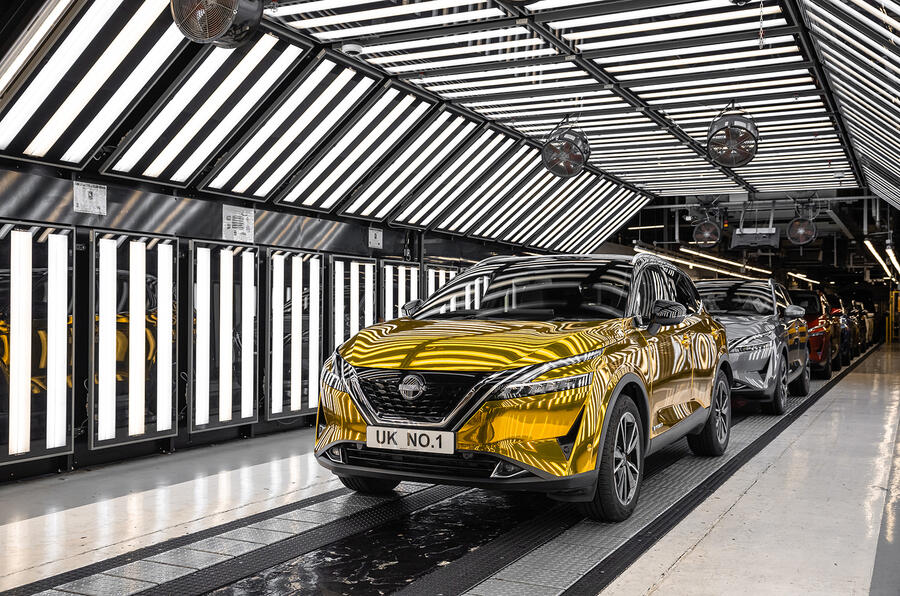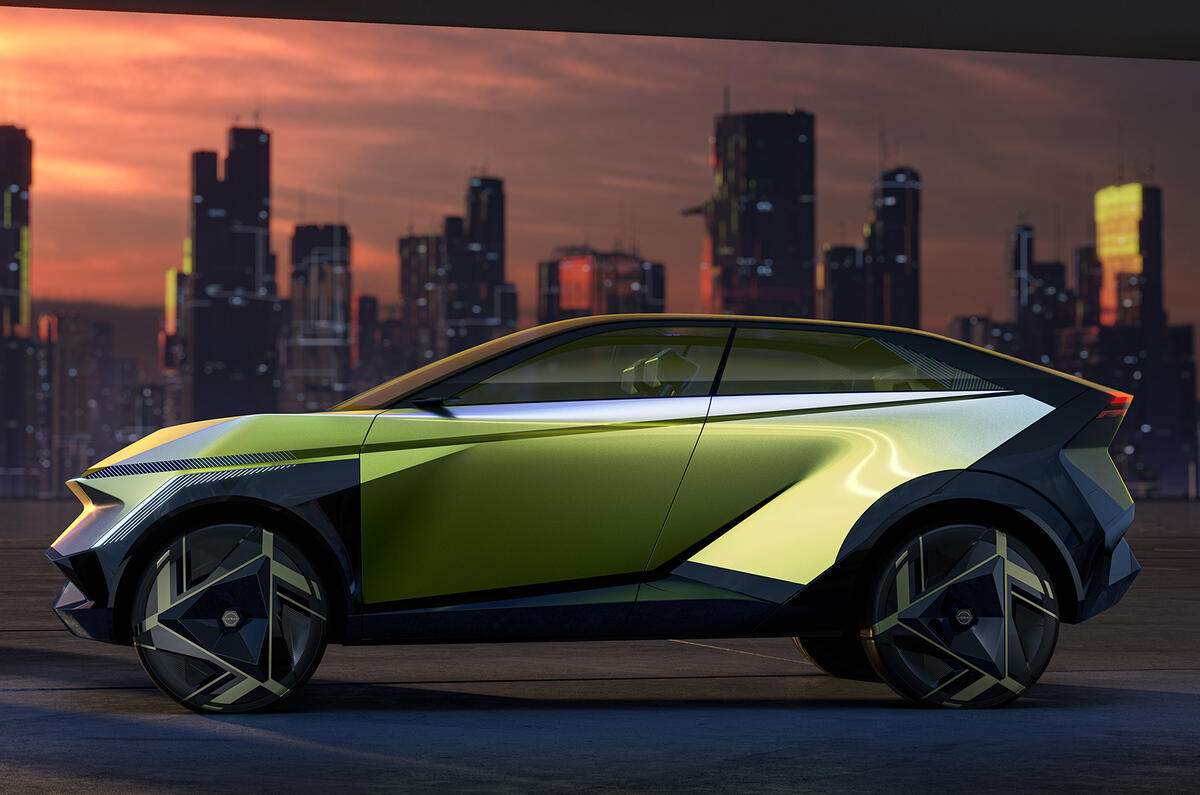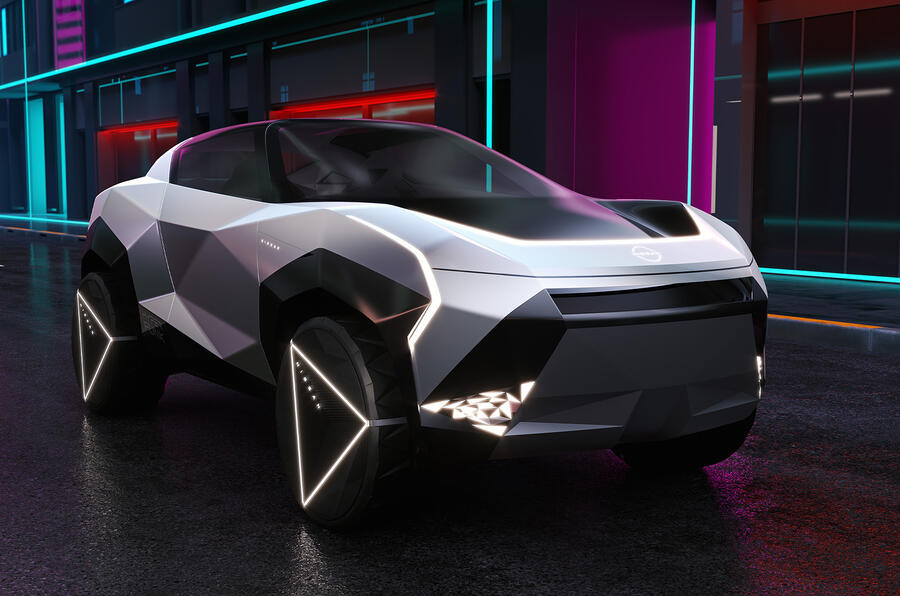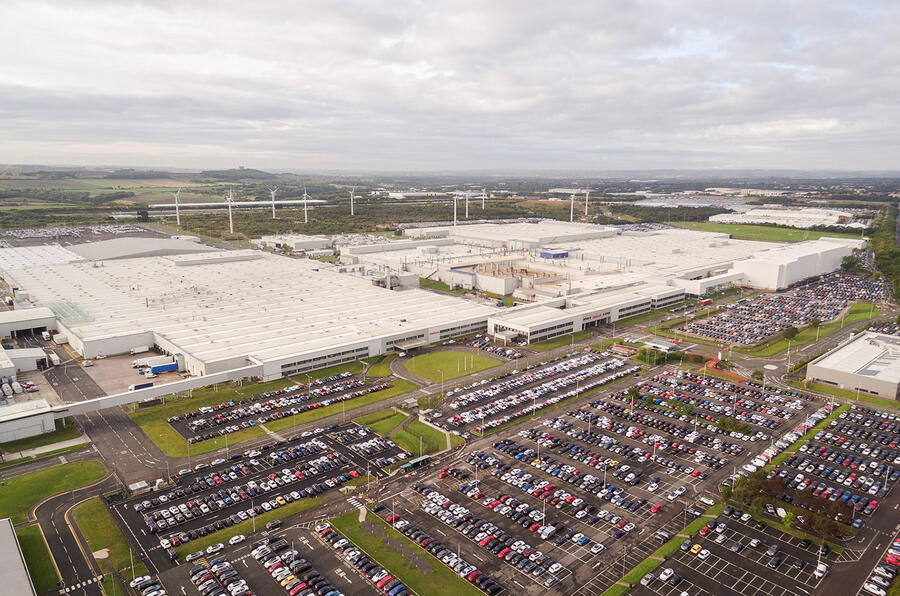Nissan will build the next-generation versions of the hugely popular Nissan Qashqai and Juke alongside the next Leaf at its factory in Sunderland, thanks to fresh investment of up to £2 billion by the firm and its partners – meaning all three models produced at the site will become fully electric.
The Qashqai and Juke have previously only been offered with combustion-engined powertrains, but their successors will be electric cars.
Both will also gain bold new styling, drawing heavily on the Hyper Urban and Hyper Punk concept cars shown at the Tokyo motor show recently.
The investment will include up to £1.12bn by Nissan in its UK operations, with the rest provided by partners such as battery partner Envision AESC.
Nissan has been clear that the £2bn figure doesn't include UK government investment but comes purely from the firm ands its partners, although it is in talks with goverment officials over further support for the plant, which could take the form of financial incentives.
The new plans for Sunderland build on the 2021 launch of the EV36Zero hub at the facility, which will now encompass the production of three EVs – and will now include three battery gigafactories, the third of which is planned to be built in the International Manufacturing Plant next to the site and will be "more or less" the same size as the one under construction.
The Sunderland site is currently home to production of the current petrol-engined Qashqai and Juke models, along with the second-generation Leaf EV.

Nissan had previously announced one electric car – a sleek new SUV that is now confirmed as the Leaf successor – would be built in Sunderland. The investment in the original phase of the scheme amounted to £1bn, including £423 million from Nissan.
The company said that the next investment by itself and its partners will be worth up to £2bn – meaning the move to convert the plant fully to EV production will represent a £3bn investment.
Nissan boss Makato Uchida said that “exciting, electric vehicles are at the heart of our plans to achieve carbon-neutrality”.
He added: “The EV36Zero project puts our Sunderland plant, Britain’s biggest ever car factory, at the heart of our future vision. It means our UK team will be designing, engineering and manufacturing the vehicles of the future, driving us towards an all-electric future for Nissan in Europe.”










Join the debate
Add your comment
A somewhat disingenuous article. New EU rules coming into force in early 2024 will put a 10% tariff on UK car exports to the EU if the vehicle is less than 45% home made, something Nissan has previously made clear would make UK production unviable. Govt also has to compete with Chinese state subsidised imports. This is a politically motivated move, not a massive vote of confidence.
That's right, Nissan haven't a clue what they're doing. 10% tarriffs, we forgot about that - doh! Of course it's a vote of confidence. If Nissan saw no future they would not be investing their own money. End of.
In no way would I even suggest Brexit aided this decision but news like this have remainers scraping the bottom of the barrel to find negatives in what's a good news story.
It was a politically motivated move to bring Nissan to the UK in the first place. It was a politcally motivated move for Germany to offer Musk 1 billion Euro of taxpayers money to build his plant in Germany. Of course investment on this scale is politically motivated. You don't think manufacturers chose locations based on scenery? Welcome to the world of business.
Couple of points. The EU rule you speak of coming that was to come in the 1st Jan 2024, I think, is about to be delayed for 3 years. Also, that tariff works both ways which is one reason why certain coutries are happy for it to be delayed.
Either way 3 new Nissan BEVs to be built in UK with UK batteries is good news in my book
Regardless, I don't believe the 10% tariff will affect them much, as they don't plan to sell many of those in the EU.
I don't even remember ever seeing a Puke in continental Europe, just Qashqai every now and then.
New Qashcow inspired by Hyper Urban concept, ok...
If it looks anything like the concept, I'll eat both my hats.
Sunderland isn't on Tyneside. It's on Wearside. The river Wear runs through Sunderland.